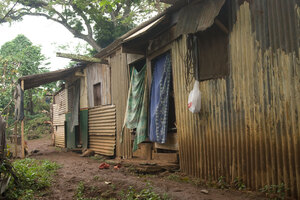[This week’s Communications column for the Vanuatu Independent.]
About a month ago, I gave a talk [Powerpoint File] to telecommunications network operators from all over the Pacific region. It dealt with the social aspects of Vanuatu’s communications revolution. Many of the themes I touched on will be familiar to readers of this column.
In a nutshell, I talked about Digicel’s approach to so-called marginal markets and how they relied on Network Effects to generate traffic where there had been none before. Once you have more than a certain percentage of the population using a particular means of communication, everyone else is compelled to join them, simply because everybody is using it.
Mobile telephone services significantly enhance one – and only one – important aspect of Vanuatu culture. They enable family members and friends to stay in touch with one another much more easily than they could before. This has the effect of strengthening some of the bonds that keep small groups together. As such, it should be viewed as a positive reinforcement of many of the things that we hold dear.
But in Vanuatu society, there’s more to communication than conversations between family members. We’ve so far succeeded in re-creating the kitchen conversation by electronic means. But we have no nakamal, no nasara. We have no meeting place we can truly call our own.

